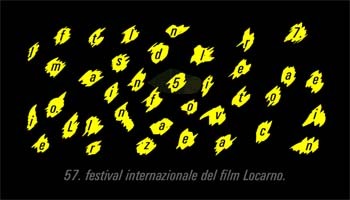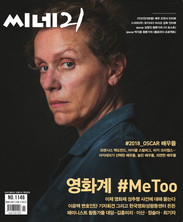케이크 위에 있는 크림이 언제부터 케이크보다 중요해진 것일까?
평론가로 직장생활이 부자연스러울 정도로 영화제 참가를 많이 하는 사람으로서, 점점 영화들이 유일한 행사가 아니라 그저 장식의 일부가 되어가고 있다는 느낌이 커져가고 있다.
올해 개최된 제57회 로카르노국제영화제(8월4∼14일)는 이 느낌이 더 강했다. 영화제는 이탈리아어를 하는 남부 스위스 지방의 큰 호숫가의 그림 같은 마을에서 열렸다. 거기서 상영되는 영화들은 늘 멋진 알프스 풍경과 습한 날씨와 베니스영화제의 높이 솟은 존재와 경쟁을 해야 했다. 베니스영화제는 몇주 뒤 국경 넘어 이탈리아에서 개최되는데 보통 로카르노영화제보다 나은 영화들을 대다수, 그리고 제일 큰 영화들을 모두 빼앗곤 한다.
그럼에도 불구하고 로카르노영화제는 새로운 인재 발견의 장(원래 초점은 데뷔감독과 두 번째 작품을 낸 감독에 맞췄다)으로, 그리고 지식인 대상의 행사로 존경받는 역사를 지녔다. 90년대 로카르노영화제 집행위원장이었던 마르코 뮐러(현재 베니스영화제 집행위원장)는 소형 베니스영화제로의 변모를 시도했으나 실패했다. 현재 새로운 집행위원장은 이탈리아의 베테랑 기자 출신 이레네 비냐르디인데, 그녀는 경쟁부문에 더 접근하기 쉬운 영화를 선정하면서 생기를 회복시키고, 영화제에 더욱 친숙하고 인간적인 얼굴을 입혀줬다. 그러나 비냐르디 위원장은 영화광이라기보다 일반교양 기자쪽에 속하며, 올해 그녀의 진정한 색깔이 드러나기 시작했다. 경쟁부문은 그녀가 집행한 4년 중 가장 약했으며 주로 작고 가끔은 유쾌하지만 대부분 주목받지 않는 영화들로 구성됐고, 그녀는 영화제를 오히려 일반교양 모임으로 변모시키고 싶어하는 인상을 줬다.
‘인권의 날’이 개최됐고, 저널리즘에 대한 패널 토의(영화 속의 저널리즘을 다룬 큰 회고전에 관련됨)가 있었다. 마을의 아름답고 오래된 피아차 그란데의 야외상영은 오래된 고전영화에 경의를 표하는 상영이 지배적이었다. 영화제가 국제영화의 최첨단에 서 있다는 느낌이 더이상 들지 않았다.
그러나 비냐르디의 집행 방향이 미래의 길일지도 모른다. 2001년 이후 유럽에는 3개의 주요 영화제가 일차적으로 현대 세계영화에 관심을 갖지 않은 사람들로 집행되고 있다. 바로 로카르노의 비냐르디와 칸의 티에리 프레모(영화자료 보관인 출신)와 베를린의 디이터 코슬릭(영화 관료 출신)이다. 그리고 이 영화제들의 윤곽은 이미 그 결과 변형되고 있다.
베를린영화제는 이제 (젊은 인재 발굴 및 교육의 장인) ‘탤런트 캠퍼스’와 공동제작 간담회가 열리고, 칸영화제는 광범위한 회고전 부문과 다른 장식적인 행사들이 열린다. 다다익선 트렌드는 영화제 세계가 수년간 앓아온 것으로 프로그래머들이 선정한 영화나 지식 부족 등에 대한 불안을 감추는 것이다. 모든 이를 위한 모든 것이 되어주려고 하는 것이다.
역사가 더 짧고 작은 영화제들조차도 이 상피병(象皮病)으로부터 벗어나지 못한다. 부산영화제도 조심해야 할 것이다! 영화제가 그저 세계영화의 최고작들만 조명하는 나날들은 이미 사라졌다.
When does the icing on a cake become more important than the cake itself?
As someone who spends an unnaturally large part of his working life attending film festivals as a reviewer, I've been getting the increasing feeling that the movies are more and more becoming just part of the decoration, not necessarily the sole event.
This year's 57th Locarno Intl. Film Festival (4-14 August) brought the message home with a bang. The event is held in a picturesque town by a large lake in the southern, Italian-speaking part of Switzerland. The movies there have always had to compete with the stunning Alpine scenery, extremely humid weather and the towering presence of the Venice Film Festival, which takes place a few weeks later across the border in Italy and usually manages to grab most of the better and all of the biggest films.
Despite that, Locarno has a respected history as a discoverer of new talent (its original focus was on first and second-time filmmakers) and as a rather highbrow event. During the '90s, Locarno's artistic director, Marco Muller (now head of Venice), tried - and failed - to turn it into a mini-Venice; its new artistic director, veteran Italian journalist Irene Bignardi, revitalised the Competition with more accessible movies and gave the festival a friendlier, more human face.
Bignardi, however, is more of a general cultural journalist than a dyed-in-the-wool film buff, and this year her true colours started to show through. The Competition was the weakest of her four years - largely small, sometimes pleasant, but mostly unremarkable movies - and she gave the impression of wanting to turn the festival more into a general cultural gathering.
There was a Human Rights Day and a panel discussion on journalism (linked to a large retrospective on journalism in the movies). Open-air screenings in the town's beautiful old Piazza Grande were dominated by tribute screenings of old classics. There was no longer a sense of the festival being on the cutting edge of international cinema.
Yet maybe Bignardi's direction is the way of the future. Since 2001, Europe has three major festivals programmed by people whose interests are not primarily contemporary world cinema - Locarno's Bignardi, Cannes' Thierry Fremaux (a film archivist) and Berlin's Dieter Kosslick (a film bureaucrat) - and the festivals' profiles are already morphing as a result.
Berlin now has a "talent campus" and coproduction confabs; Cannes has extensive archival sections and other decorative events. The more-is-better trend is one that has been afflicting the festival world for some years, masking programmers' insecurity about their choices and/or lack of knowledge, and trying to be all things to all people.
Even younger, smaller festivals are not exempt from this elephantiasis - Pusan, beware! - but the days when a film festival showcased simply the best of world cinema are already long gone.


